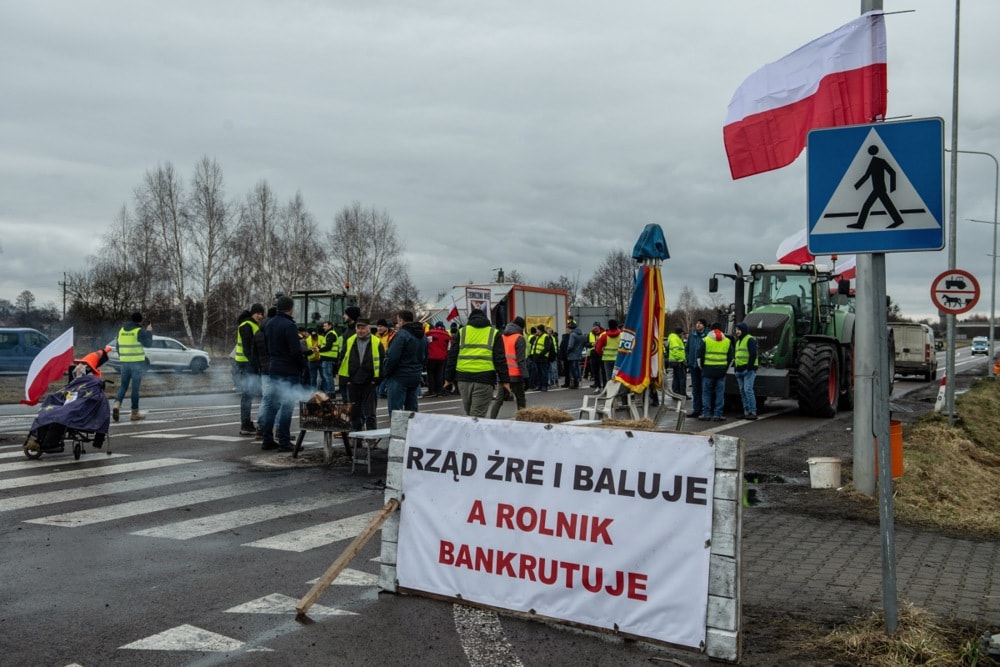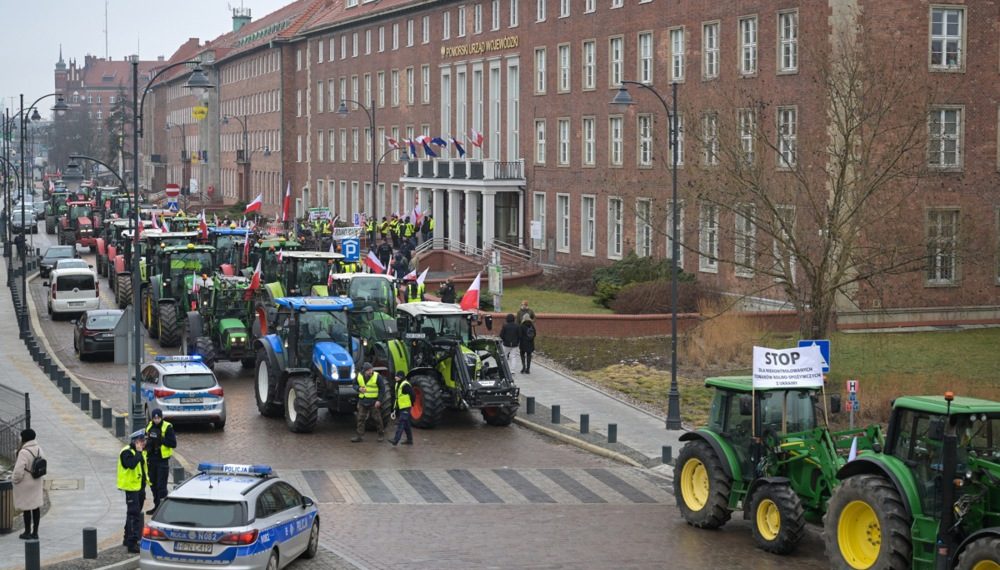Polish farmers plan to intensify protests along the Ukraine border, aiming to disrupt traffic as they advocate for their livelihoods. Amid grievances over EU climate measures and competition from Ukraine, the Solidarity farmers’ union announces a comprehensive blockade.
While allowing military aid passage, the blockade targets all other traffic, including passengers and lorries. This escalation marks a shift from previous protests, which didn’t fully impede border crossings. However, Ukrainian authorities express concerns, stressing the impact on their defense capabilities and Russia’s objectives.
The standoff strains relations between Poland and Ukraine, despite their recent solidarity amid Russia’s invasion. The Polish government acknowledges farmers’ grievances but urges caution to avoid hindering Ukraine’s war effort.
Amid the standoff, Ukrainian haulers plan their own peaceful protests at blocked crossings, seeking to control traffic flow and prevent Polish trucks from bypassing queues. President Zelenskiy laments the erosion of solidarity, emphasizing the political nature of the dispute over grain exports.
Polish officials defend farmers’ actions, rejecting criticism and urging Zelenskiy to witness the challenges firsthand. Agriculture Minister Siekierski indicates ongoing negotiations with Ukraine, hinting at potential import restrictions by March’s end.

Ukrainian Agriculture Minister Solsky calls for a constructive approach amid concerns of provocation. Despite tensions, both sides expressed readiness for dialogue, highlighting the need for rational solutions amid the border standoff.
As the protests continue, the diplomatic strain underscores broader issues of regional cooperation and solidarity in times of crisis. The fate of these negotiations will impact not only farmers’ livelihoods but also the geopolitical dynamics between Poland and Ukraine.
Amid border tensions, diplomacy remains critical for resolving the standoff and preserving the relationship between the neighboring nations.





